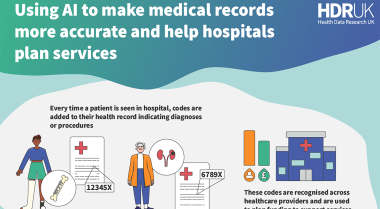Partner Bereavement and Detection of Dementia: A UK-Based Cohort Study Using Routine Health Data
11 September 2019
Harriet J. Forbes, Angel Y.S. Wong, Caroline Morton, Krishnan Bhaskaran, Liam Smeeth,
Marcus Richards, Sigrun A.J. Schmidt, Sinead M. Langan and Charlotte Warren-Gash
Journal of Alzheimer’s Disease 72 (2019) 653–662
Abstract
Background In the UK, an estimated one third of people with dementia have not received a diagnosis. Good evidence suggests that dementia risk is increased among widowed individuals; however, it is not clear if they are being diagnosed in routine primary care.
Objective This study aimed to investigate if bereavement influenced the probability of having received a dementia diagnosis.
Methods A population-based cohort study using UK electronic health records, between 1997 and 2017, among 247,586 opposite-sex partners. Those experiencing partner bereavement were matched (age, sex, and date of bereavement) to a non-bereaved person living in a partnership. Multivariate cox regression was performed.
Results Partner bereavement was associated with an increased risk of receiving a diagnosis of dementia in the first three months (hazard ratio (HR) 1.43, 95%CI 1.20–1.71) and first six months (HR 1.24, 95%CI 1.09–1.41), while there was a small reduced risk of getting a dementia diagnosis over all follow-up (HR 0.94, 95%CI 0.89–0.98).
Conclusions Partner bereavement appears to lead to a short-term increased risk of the surviving partner receiving a diagnosis of dementia, suggesting that bereavement unmasks existing undiagnosed dementia. Over the longer term, however, bereaved individuals are less likely to have a diagnosis of dementia in their health records than non-bereaved individuals.



